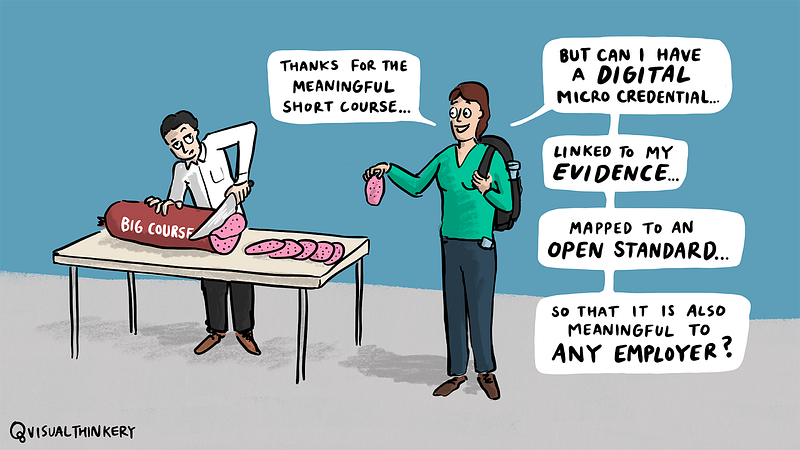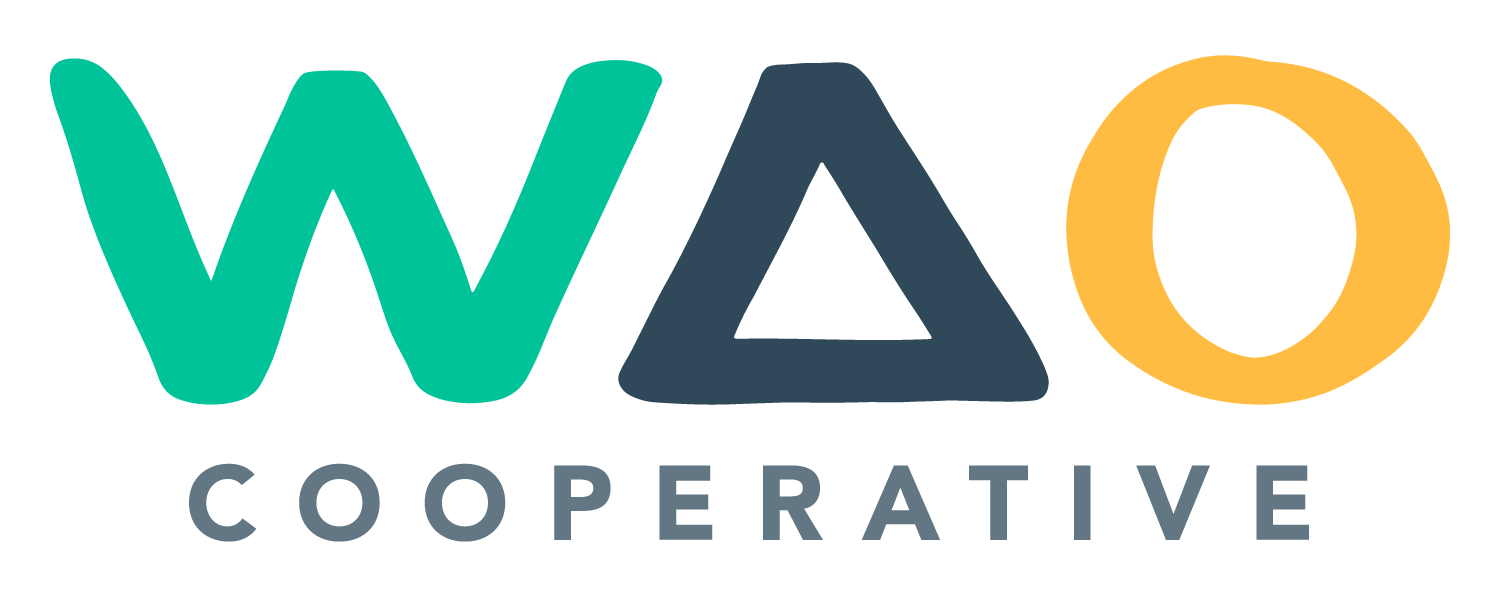
This is the final post in a series drawing on insights from a report authored by We Are Open Co-op (WAO) for the Irish National Digital Leadership Network (NDLN). The report explores the historical roots of credentialing, the emergence of microcredentials, and their potential to reshape education and professional development.
This post draws on the insights explored so far to outline a vision for the future of microcredentials. By focusing on inclusivity, open standards, and meaningful recognition, microcredentials can be a transformative tool for education and professional development. Here, we propose actionable steps for organisations to harness their potential and create systems that truly empower learners.
- Part 1 — Introduction and Context
- Part 2 — The Evolution of Credentialing
- Part 3 — Demystifying Microcredentials
- Part 4 — Trends Shaping the Future of Microcredentials
- Part 5 — The Role of Technology in Microcredentialing
- Part 6 — Challenges and Risks in Microcredentialing
- Part 7 — A Vision for the Future of Microcredentials (this post)
Open Recognition as a Guiding Principle
A key aspect of the future of microcredentials is the principle of Open Recognition, which values learning in all its forms, whether formal, informal, or experiential. By embracing this approach, organisations can ensure microcredentials acknowledge diverse achievements and highlight contributions that might otherwise be overlooked.
For instance microcredentials can help:
- Charities — Recognise the skills gained through volunteering, advocacy, and community projects, offering participants portable evidence of their contributions.
- NGOs — Validate the efforts of community workers, promoting inclusion and recognising the expertise developed in challenging environments.
- Co-ops — Highlight collaborative and informal learning within member-driven structures, supporting collective progress and innovation.
- Businesses — Align microcredentials with organisational priorities, such as sustainability or diversity, to strengthen employee development and retention.
- Higher Education — Create stackable credentials that integrate with degree programmes and reflect industry partnerships, enabling more flexible and relevant learning pathways.
The Responsible Use of Technology
Technology plays a critical role in delivering effective microcredentialing systems. Tools like Open Badges and Verifiable Credentials ensure transparency, portability, and security. Digital wallets give learners control over their achievements, while AI can assist in mapping skills and recommending pathways.
However, implementing these tools requires careful consideration. Equity, accessibility, and data privacy must be central to their design to avoid excluding certain groups or compromising trust. By prioritising interoperability and avoiding proprietary systems, organisations can ensure credentials remain functional across platforms and contexts.
Encouraging Cross-Sector Collaboration
The development of impactful microcredentialing systems relies on partnerships across education providers, employers, policymakers, and technology developers. Collaboration can:
- Align microcredentials with societal goals and workforce needs.
- Establish shared quality assurance frameworks to build trust.
- Pool resources and expertise to address challenges like accessibility and cost.
Such partnerships help ensure that microcredentials are not only useful but also widely recognised and respected.
Embedding Inclusivity and Equity
For microcredentialing systems to achieve their full potential, inclusivity must be at their core. This means designing platforms that are accessible to people with diverse needs, reducing financial barriers, and proactively engaging marginalised communities. Embedding these values ensures microcredentials contribute meaningfully to social equity and support lifelong learning opportunities.
Taking the Next Step
Microcredentials have the potential to celebrate diverse learning experiences, allowing individuals to present their skills and achievements in ways that matter. Whether your organisation is considering a pilot project or a larger-scale initiative, We Are Open Co-op can provide the expertise you need. From strategic planning to technological implementation, we ensure your microcredentialing projects are impactful and learner-focused.
👋 Get in touch with us today to explore how we can support your journey toward a more inclusive and forward-thinking approach to credentialing.

Discussion